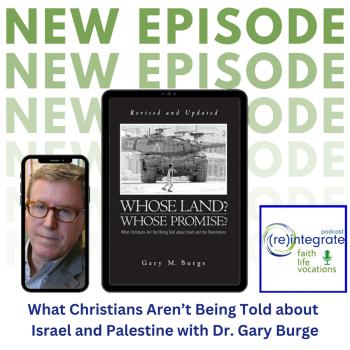 In John 20, the risen Jesus twice says to his disciples “Peace be with you,” before commissioning them. The Greek word, eirēnē, corresponds to the Hebrew word, shalom.
In John 20, the risen Jesus twice says to his disciples “Peace be with you,” before commissioning them. The Greek word, eirēnē, corresponds to the Hebrew word, shalom.
“Seldom do we find in the Old Testament a word which to the same degree as shalom can bear a common use, and yet can also be filled with the concentrated religious content far above the level of the average conception.” (Gerhard Kittel and Gerhard Friedrich, Theological Dictionary of the New Testament (Grand Rapids, MI: Eerdmans, 1964), 2:402.)
In his excellent little book, Engaging God’s World: A Christian Vision of Faith, Learning, and Living, Cornelius Plantinga Jr. offers this definition of shalom:
“The webbing together of God, humans, and all creation in justice, fulfillment, and delight is what the Hebrew prophets called shalom. We call it ‘peace,’ but it means far more than just peace of mind or cease-fire between enemies…
…(it) means universal flourishing, wholeness, and delight–a rich state of affairs in which natural needs are satisfied and natural gifts fruitfully employed, all under the arch of God’s love. Shalom, in other words, is the way things are supposed to be.”
When looked through this lens, the mission of God is to reverse the Fall’s destruction of shalom by way of inaugurating the kingdom of God through his Son.
Mike Wittmer writes,
“(Isaiah) envisions a day when God’s chastened people will return to the land and be governed justly by the Prince of Peace. This fighter for shalom will not only restore proper order to society but also remove the debilitating sin of its members by suffering in their place. In the words of Isaiah, the coming Messiah ‘was pierced for our transgressions, he was crushed for our iniquities; the punishment that brought us peace (shalom) was upon him, and by his wounds we are healed.” (Heaven is a Place on Earth, p 109)
This is fulfilled in the person of Jesus, as the Christmas hymn Joy to the World puts it,
“No more let sins and sorrow grow;
Nor thorns infest the ground;
He comes to make His blessings flow;
Far as the curse is found.”
In a previous post, I said that I believe that the kingdom of God is both particular to his people yielded to his will and universal to bring blessing to all nations and the whole cosmos.
It is particular because, as Ross Hastings states, “as communities of the presence of the risen Christ, churches should be communities that experience and express shalom.” This shalom is missional, according to Hastings, because it is the divine mission to reconcile all of creation and humanity to their proper relatedness to God, “And that begins with the new humanity already reconciled, and disseminates from there.” (Missional God, Missional Church, p. 127-128)
As the people of God experiences and expresses the shalom that comes from God, the people of the world are blessed!
The paradigm for this is found in Jeremiah 29 when God sent a letter to the Israelites who had been carried away to Babylon, commanding them to “seek the shalom of the city to which I have exiled you, and pray on its behalf to the Lord, for in its shalom there will be shalom for you.”
That is an amazing command. These are the Babylonians! And God wants his people to bless them! Chris Wright gets it right when he writes,
“The exiles had a task—a mission no less—even in the midst of the city of their enemies. And that task was to seek the welfare of that city and to pray for the blessing of YHWH upon it. So they were not only to be the beneficiaries of God’s promise to Abraham…they were also to be the agents of God’s promise to Abraham that through his descendants the nations would be blessed.” (The Mission of God, 99-100).
How can we be a blessing to those around us, seeking shalom for our co-workers, our neighbors, and even our cities? Do we pray for shalom for everyone we know? Are we willing to do what it takes for them to expereince shalom? What do you need to do to change the way you engage in your vocations so that you can e an instrument of shalom?













